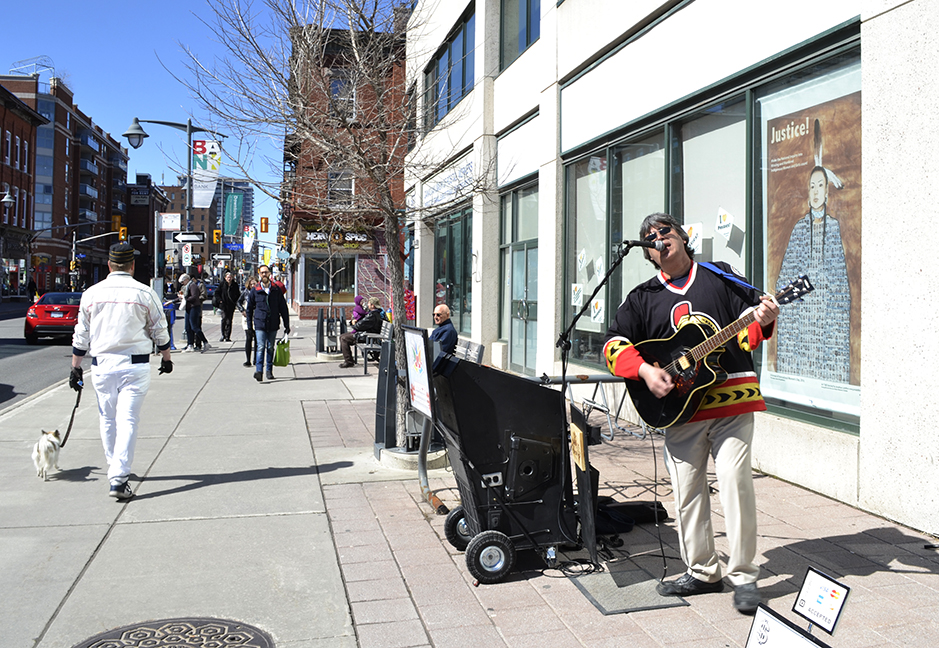City’s music scene gets $30K to build industry
By Liam Fox
Juiced by the Junos, Ottawa has announced an extended commitment to strengthening the city’s music scene.
As the country’s top musical talent gathered in Ottawa for the annual Juno Awards, the City of Ottawa announced it will partner with the Ottawa Music Industry Coalition to launch a task force of music industry leaders and others aimed at developing an in-depth strategy to help Ottawa artists, venues and other music-related businesses.
“Major stakeholders worked very quickly to make sure that (the Junos) will not just be a good show and then leave. We want it to have a long-lasting legacy on the Ottawa music industry,” said Kitchissippi Coun. Jeff Leiper, a longtime music advocate.
Ottawa Mayor Jim Watson announced the city’s initial commitment — $30,000 in funding for the task force — at the Junos-sponsored “Ottawa as a Music City” panel held on March 31.
“Live music is a growth industry in Ottawa. It shapes our identity and who we are as a city,” Watson said in a press release. “In addition to the cultural benefits, a thriving music industry helps to level the playing field for our home grown companies who are competing to attract talent from around the world.”
Although Leiper would not put any strict timeline on the initiative, he said that the task force will form over the next few months and that a precise strategy will be developed within the next year or so. He said city funding will be part of the strategy.
Task force membership will extend beyond the music industry, according to Leiper.
“We need to make sure that the private sector is supporting music, because it affects the tourism sector, high tech sectors, and other business sectors,” he said.
John Bartlett, vice-president of OMIC and owner of Kelp Records in Centretown, has been promoting the city’s musical talent since 1994. Now he’s focused more on supporting musicians.
“I have been a part of Ottawa music for the past 18 years,” Bartlett said. “Stretching back to even my days as an artist, the biggest gap in helping musicians has always been a lack of infrastructure.”
According to Leiper, the growth of the Ottawa music industry’s infrastructure will be critical in keeping musical talent in the nation’s capital.
“We want a music scene in Ottawa that is vibrant, that is known internationally, that is sustainable, and that keeps our talent in town rather than having to go to Toronto, or Montreal, or L.A., or Nashville to succeed,” he said.
A 2015 study conducted by OMIC president Andrew Vincent concluded that Ottawa pales in comparison to other Canadian cities in terms of musical infrastructure. Ottawa has only one music publisher compared with 21 in Toronto and only two record labels compared with the 53 in Toronto. According to a 2013-14 Statistics Canada survey, Ottawa also ranks poorly in the number of sound recording industry locations, finishing sixth among Canadian cities, despite being the country’s capital.
“The bigger players are understanding that if you do not have things right on the lower levels, then they are not going to have artists to put in the big venues later,” Bartlett said.
Although Bartlett says industry insiders are unsure exactly what the task force’s engagement will be at this point, he is confident in the city’s commitment to the cause.
“There are enough people around the table where we will see it through. We just have to figure out the details,” he said.

